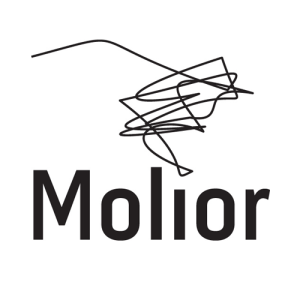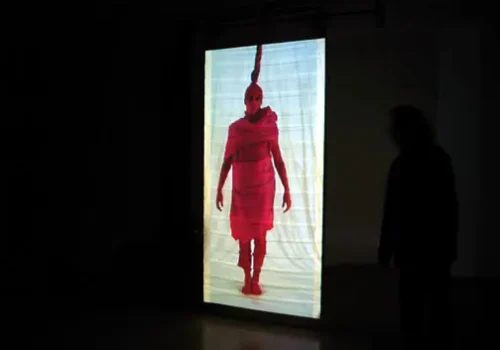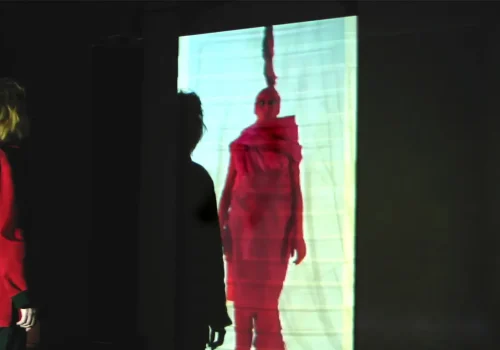Formica
Parisian Laundry, Montréal
From January 12th to February 24th, 2007
Groupe Molior presents Formica, an interactive video system by Philomène Longpré, at the Parisian Laundry, from January 12 to February 24, 2007.
A captivating system, Formica combines new technologies with unusual materials to create a subtle communication between the physical and virtual worlds.
Andrée Duchaine
Andrée Duchaine has worked in the visual arts area since several years. From 1974 to 1984 she was involved in setting up the video section at Vehicule Art Gallery and organized and curated VIDEO 84, the first international video encounters in Montreal. Mrs Duchaine curated several video art exhibitions in Europe, the United States and Canada. Between 1985 and 1995 she settled in Paris where she founded a short film distribution company. She worked with T.V. channels across the world.
Andrée Duchaine taught at Paris VIII, at the Université du Québec à Montréal and at the Ottawa University. In 2001 she founded a non-profit company Le Groupe Molior producing, curating and disseminating new media works.
Artist & work
Philomène Longpré
Formica
2007
Interactive installation
Description of the work
Formica explores the metaphor of liberation in an environment where tension is created through a progressive uncontrollable multiplication of links. Formica‘s main intention is to offer the viewer the opportunity to have a glimpse of their own perception in relation to tension and how it is affected by interconnection — all within a defined space. As the cycle begins, the character waits patiently, seeking to communicate by creating links with the visitors. With each new link created, the dynamics of the environment changes. The visitor’s movements around the structure trigger the appearance of more and more links until the environment is charged with a sense of urgency. As these connections multiply uncontrollably, the projected images also expresses increasing levels of tension as does the structure itself. Formica attempts to respond through sound, physical movement and visual stimuli, exploring the concepts of action-reaction behaviorism and the universal experience of our ultimate connections in society and beyond.
Biography
Philomène Longpré is a multimedia artist who is engaged in exploring the intricate interactions between the physical and virtual world. Her artwork juxtaposes robotic video screen, virtual characters, and abstract sound to generate new communication between visitors and their environments. Over the past seven years, she has created interactive video systems that integrate the language of body movements and gestures. Each responsive installation investigates the potentialities of relationships by introducing the interplay of subject and object in continuous motion.
Philomène Longpré received a MFA degree in Art and Technology Studies. Her graduate studies were funded through two merit-based awards: the Art Institute’s Trustee Scholarship as well as the FQRSC Quebec grant for research in Society and Culture. She also completed a BFA degree specializing in Electronic Art at Concordia University in Montreal, Canada. During the course of her undergraduate studies, she took part in a one-year student exchange program at the University of New Mexico and also she participated in a six-month granted art project in South Asia.
Her interactive video systems have been shown in international electronic art festivals such as BUDi05 Busan (2005), FILE Sao Paulo (2004), Digifest Toronto (2004), Nexus Bangkok (2004), FIFCA Moncton (2005), Interactive Playground: Sight Unseen Chicago (2006), Promo4.3 Montreal (2004) and has exhibited in several contemporary art galleries in Canada and the United States. Ms. Longpré also has the distinction of being the recipient of the Hexagram’s Prize of Excellence of New Media (2003), the Judith Hamel New Media Award (2005), the Pinsky Medal (2004), the Studio Arts Concordia (2004), the New Millennium Scholarship (2001), the Stanley Mills Prize Purchase (2001), the Golden Key International Honour Society (2002), the CVM Culture Merite Award (1999).


